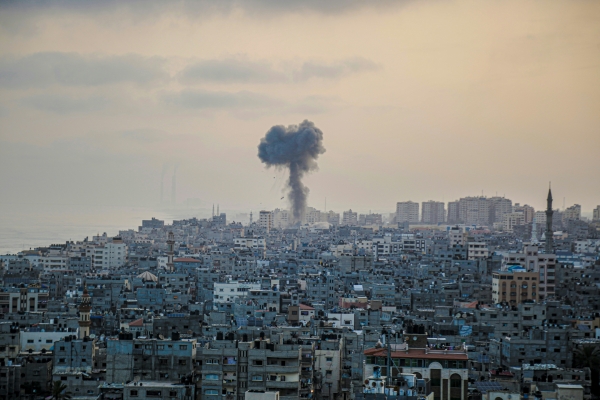The use of heavy explosive weapons in Lebanon and Israel must stop
26 September 2024
The International Network on Explosive Weapons (INEW) is deeply concerned over the increased airstrikes in towns and cities in Lebanon, as well as the rocket attacks launched against Israel.
This devastating escalation in hostilities is causing extensive suffering and harm to civilians. INEW calls on both Israel and Hezbollah to immediately stop the use of heavy explosive weapons in populated areas due to the high risk of harm to civilians, including death and injury as well as devastating humanitarian consequences due to displacement, destruction of housing and damage to critical infrastructure.
Israel's aerial bombardment in Lebanon is one of the heaviest air raids in contemporary armed conflict. On 23 September, the Israeli military struck 1,600 targets in airstrikes in 41 towns and cities in Lebanon, according to Israeli military officials. These attacks reportedly killed nearly 600 people, including 50 children, while 1,700 have been injured, according to the Lebanese Ministry of Health. The death toll will continue to rise as it is assumed that people remain trapped under rubble. As bombardment intensifies, tens of thousands of people have fled their communities to find refuge elsewhere. National authorities have reported that more than 90,000 people have been newly displaced.
These attacks come in the wake of escalation from the Israeli-Palestine conflict where over 41,000 Palestinians have been killed and 95,000 injured in the Gaza Strip between 7 October, 2023 and 23 September, 2024, according to the Ministry of Health in Gaza.
The use of explosive weapons in populated areas is the one of leading causes of harm to civilians in armed conflict worldwide. Civilians are killed and injured, with many experiencing life-changing injuries and yet more suffering severe psychological harmand distress. Damage and destruction of vital infrastructure including housing, hospitals and schools causes further harm. Unexploded ordnance poses an ongoing threat to civilians during and long after hostilities have ended, impeding the safe return of refugees and displaced persons.
Israel and Lebanon should join the Political Declaration on Strengthening the Protection of Civilians from the Humanitarian Consequences Arising from the Use of Explosive Weapons in Populated Areas and take steps to immediately implement its commitments, including restricting and refraining from the use of explosive weapons in populated areas when such use is expected to cause harm to civilians and civilian objects.
INEW calls on the 87 states that have endorsed the Political Declaration to make good on their undertaking to “actively promote the Declaration” and to “seek adherence to its commitments” by the parties to the conflict. States that have joined the Political Declaration have done so in recognition of the devastating humanitarian impact that takes place when such use occurs.
Additionally, they have also committed to take action to address civilian harm, including through public statements, as a means to strengthen the protection of civilians, as well as urging to parties to conflict to restrict or refrain from the use of explosive weapons in populated areas, in order to promote the norms and standards that the Declaration seeks to establish.
Action by endorser states to promote the Declaration, and at this time in particular, is vitally needed action to better protect civilians from the effects of explosive weapons and armed conflict.
To this end, INEW calls on endorser states to:
- Call on Israel, Hamas and Hezbollah to stop the use of heavy explosive weapons in populated areas and publicly acknowledge the ongoing harm to civilians in the region.
- Use diplomatic means and influence to promote specific actions in line with the Declaration including to:
- Call on parties to the conflict to facilitate rapid, safe and unhindered humanitarian access to those in need;
- Call on parties to the conflict to provide, facilitate or support assistance to victims – which includes people injured, survivors, families of people killed or injured as well as communities affected by the armed conflict;
- Call on parties to the conflict to facilitate the work of the United Nations, the ICRC, and civil society organisations aimed at protecting and assisting civilian populations from the humanitarian impacts of explosive weapon use.
Lebanon and Israel have not endorsed the Declaration. Palestine has endorsed the Declaration.
+++ENDS+++
To learn more:





